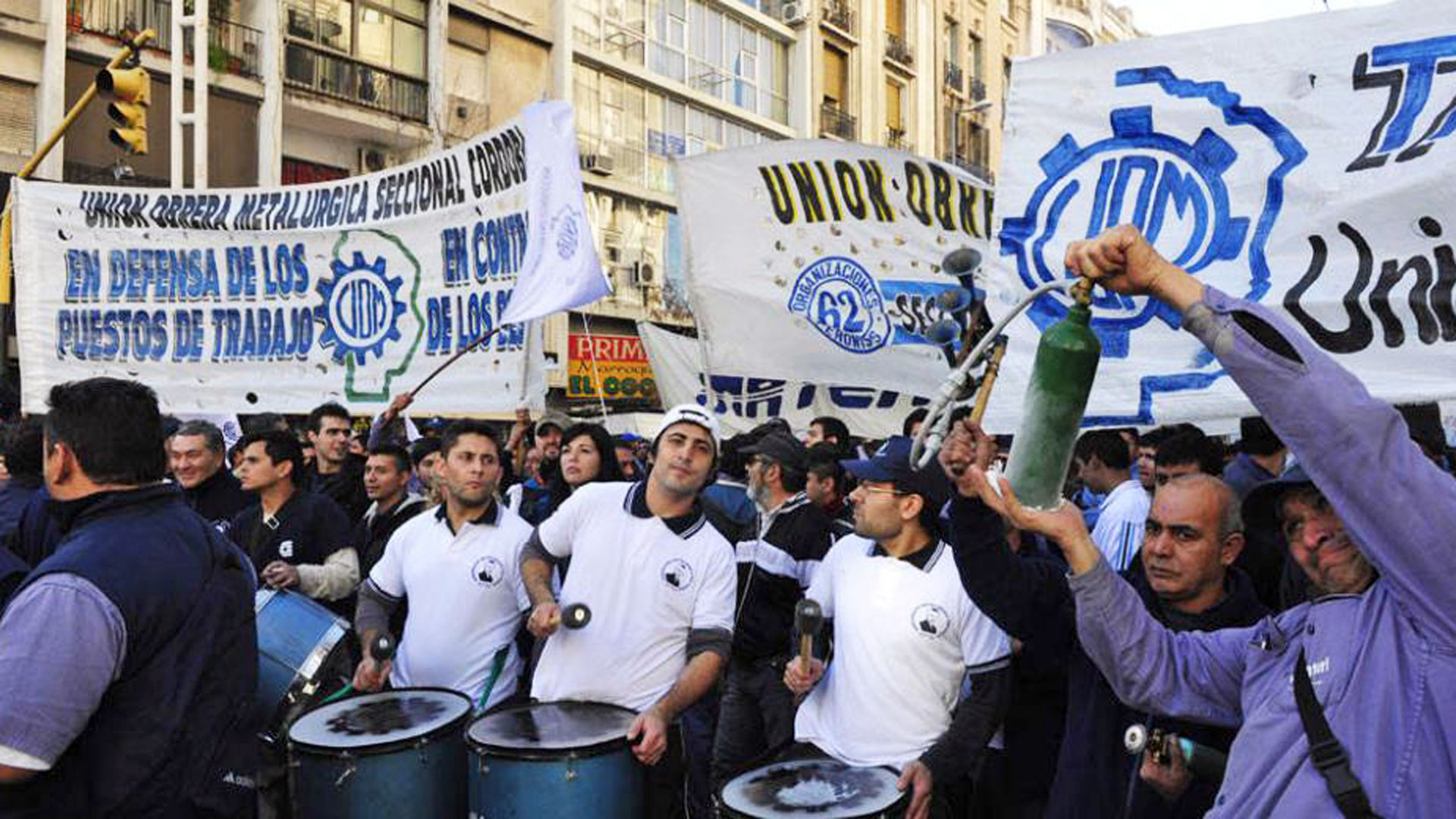
On the same day that inflation in February was known to be 4.7% and accumulated 52.3% in the last twelve months, the Union of Metallurgical Workers (UOM) closed its annual joint with a 45% increase in three tranches, although it was won by the Single Union of Toll Workers (SUTPA), which agreed to a review salary for 2021/2022 with a shocking increase: 58%.
The Government is encouraging agreements to be signed within a 40% salary pattern, but unions want to overcome it because they know that the cost of living will continue to rise: the annual projection agreed with the IMF has a ceiling of 48%, but it is estimated that at this rate it could reach 55% this year. That is why Alberto Fernández's announcement that this Friday “the war against inflation” will begin did not cause an impact among trade unionists and the paritarians began to heat up in the last hours.
In the case of UOM, the salaries agreed by the union led by Antonio Caló serve as a parameter for industrial activity. The agreement signed today in the Ministry of Labour between metallurgical leaders and business chambers provides for 45% divided into three sections: 18% to be applied from 1 April, 15% from 1 July and 12% from 1 October. In addition, the agreement includes the parties' commitment to meet next November to discuss a salary review in the event of an inflationary gap.

As was the case in the last two joint ventures, the metallurgical agreement also provides for a clause whereby companies in a crisis situation “will be able to adapt” the agreement on payment terms and the amounts signed by agreements with the union representation at the level of the sectionals of the UOM.
The hearing held at the Ministry of Labour was attended by the Caló union and a business delegation that included the Association of Metallurgical Industrialists (ADIMRA), the Federation of Industrial Chambers of Household Appliances (FEDEHOGAR), the Association of Electronic Terminal Factories (AFARTE), the Argentine Chamber of the Aluminum and Allied Metals Industry (CAIAMA) and the Association of Component Factories (AFAC) and the Chamber of Small and Medium Metallurgical Industry (CAMIMA).
Caló wanted to close the salary agreement before the metallurgical congress that will meet next week to elect him general secretary for another four-year term. Between Monday and Thursday of last week, the 54 UOM sections held elections to elect their authorities and the delegates who will devote themselves to the new national leadership of the union.

For its part, the Single Union of Toll Workers (SUTPA), led by Florencia Cañabate, supported by Facundo Moyano, agreed to a 58% increase for the 2021/2022 parity: to the 46% they had agreed last year, 12% was now added as a salary review (strictly speaking, it was signed by a 52% increase plus a cumulative 5%, which is equivalent to 58%).
With 46% signed for the 2020/2021 joint venture, the union had been 4.8% below last year's inflation, so they were now able to negotiate a recomposition according to a period of high inflation. The agreement expires in June, so that in three months new negotiations between the parties will resume in order to achieve a parity increase.
KEEP READING
Últimas Noticias
Debanhi Escobar: they secured the motel where she was found lifeless in a cistern

The oldest person in the world died at the age of 119

Macabre find in CDMX: they left a body bagged and tied in a taxi
The eagles of America will face Manchester City in a duel of legends. Here are the details

Why is it good to bring dogs out to know the world when they are puppies



